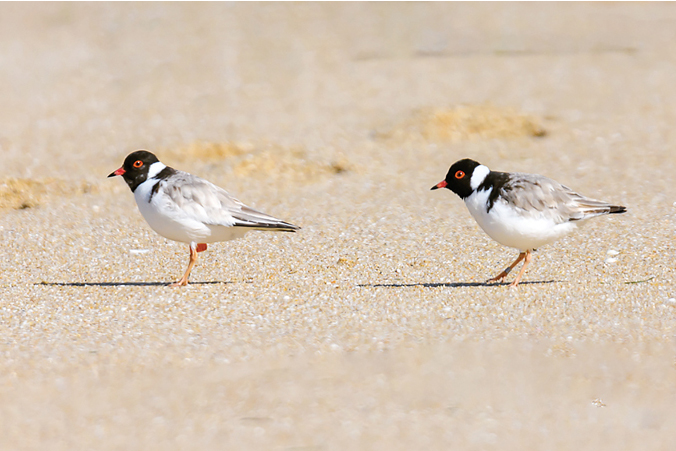ENVIRONMENTAL advocates are pleading for people to be respectful of the Mornington Peninsula’s sensitive landscapes and the people who care for them, following recent criticisms of protection measures in place for native wildlife.
Secretary of the Friends of the Hooded Plover (Mornington Peninsula), Karen Wootton, said recent media attention given to an incident at Blairgowrie where the endangered birds are known to be nesting had demonised the national park rangers tasked with caring for them.
“Recently, in both print and radio media, there has been an article circulating which describes Mornington Peninsula National Park rangers as ‘making children cry’, and wishing to impose ‘militant extremist bans’ in national parks,” she said.
The article stems from an incident where a parent was asked by a ranger to stop her children playing in dunes adjacent to a roped and signed Hooded Plover nest at Blairgowrie.
Wootton said the incident became “weaponised” when shadow environment minister James Newbury and radio host Neil Mitchell became involved, amid claims park rangers were “locking off public lands”.
On Mitchell’s program Newbury described the rangers’ attempts to protect the areas as “overkill”.
“Kicking them off the bottom of sand dunes … for having a little play, I think it’s just madness,” he said.
But Wootton said the negative media coverage of national park rangers and Hooded Plover protection measures had distressed Friends of the Hooded Plover (Mornington Peninsula) volunteers, Parks Victoria staff and Birdlife Australia, as well as members of the public who care for the environment and conservation.
“Dunes are habitat for unique flora and fauna, the location of sacred cultural sites and also an important protective barrier at the intersection of land and sea,” she said.
Wootton said that just like the patrols being done near the elephant seal at Blairgowrie, park rangers have a duty to protect wildlife, people and environments.
“It is not the intent of any ranger to cause harm, rather to educate and inform. That is part of the job they undertake. And from our experience they do it exceptionally well,” she said.
The Mornington Peninsula National Park’s 35 kilometres of coastline is home to around 30 breeding pairs of Hooded Plovers – the largest population in the state.
It is estimated that less than 2.5 per cent of all Hooded Plover eggs make it to adult stage, due to disturbance by humans, coastal weeds, rough weather and predation by foxes and predator birds.



